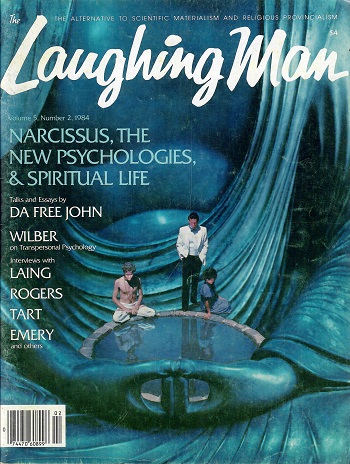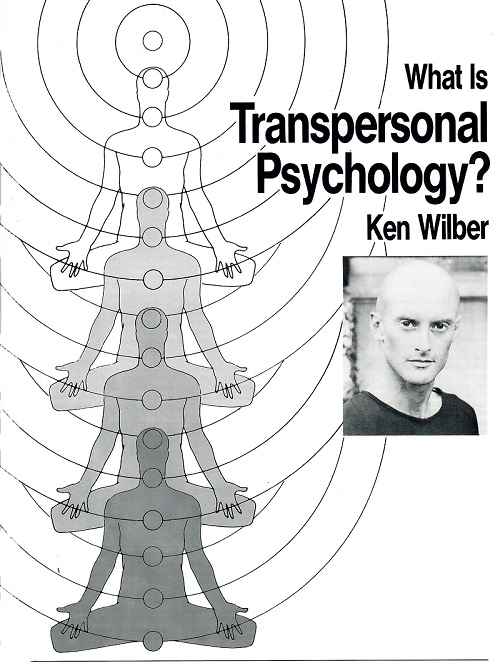Originally published in

Vol 5, NO 2, 1984

From a scientistic perspective, mainstream psychology in one or another of its forms is the last word on the nature of Man. But from the perspective of the great Realizers and Adepts, the viewpoint epitomized by modern psychology is seen to be myopic and reductionistic—unable or unwilling to move beyond the narrow spectrum of human possibilities that “fit” within the confines of the world-view of objectivist science.
Transpersonal psychology stands at the borderline where science meets religion and spirituality and where therapy and discussion meet spiritual practice and personal commitment. Thus, transpersonal psychology has fallen liable to criticism from both sides of the border, since it is neither conventionally objective science nor an all-embracing way of spiritual transformation.
In the following article, Ken Wilber offers an honest and insightful assessment of the position of transpersonal psychology. While frankly admitting its limitations as a transformative path, he points out that transpersonal psychology nonetheless serves a useful mediative purpose between the more traditional schools of psychology and truly transformative spiritual disciplines.
Wilber also affirms that transpersonal psychologists are generally practitioners of one or another spiritual path. However, many spiritual paths and systems themselves do not communicate the seventh stage, God-Realized point of view. In these cases, the orientation of the transpersonal psychologist himself is necessarily limited and may not go beyond fascinated acknowledgment of the extraordinary possibilities discovered in the fourth and fifth stages of life. Such a point of view, by itself, is as self-possessed and opaque to the Radiance of God as the mainstream psychological models.
Nevertheless, sympathy with both higher psychic and transcendental realities is necessary and also sorely lacking in our Spirit-denying culture. Transpersonal psychologists have attempted, within the “respectable ” limits of a third-stage theoretical framework, to persuasively counter the psyche-denying and Spirit-denying points of view of mainstream behavioral sciences.
Ken Wilber is a leading transpersonal psychologist and editor in chief of Re Vision, an academic journal devoted to the psychological and sociological impacts of consciousness research. His books include A Sociable God, Eye to Eye, Up from Eden, The Atman Project, No Boundary, and The Spectrum of Consciousness.
 braham Maslow—who is generally regarded as the modern founder of transpersonal psychology—pointed out that there are now “Four Forces” in the field of psychology:
braham Maslow—who is generally regarded as the modern founder of transpersonal psychology—pointed out that there are now “Four Forces” in the field of psychology:
(1) behaviorism, or objective-empirical (and therefore often physicalistic) approaches;
(2) psychoanalysis, or psychodynamic and psychosexual approaches;
(3) humanistic, or existential and mental-intentional approaches; and
(4) transpersonal, or spiritual and transcendental approaches.
In a sense, the four major forces of psychology deal, respectively, with the first four stages of life as outlined by Master Da Free John—the physical-vital, the emotional-sexual, the mental-intentional, and the beginning-spiritual. Each of the “four psychologies,” then, has something very important, very necessary, very significant—and very limited—to tell us, and thus each should be approached, in my opinion, with a mind both open-appreciative and critical-evaluative.
In a sense, however, transpersonal psychologists have always attempted to do just that. In other words, it is not quite accurate to say that transpersonal psychology is interested solely or even predominantly in the fourth stage of life. Transpersonal psychology is theoretically interested in all stages of life or levels of consciousness, one through seven. It accepts the valid aspects of the first three stage-schools of psychology, and it then attempts to bridge or unite them, theoretically, with the three higher stages schools of development (e.g., yogis, saints, and sages).
Now I emphasized the word “theoretically” for an important reason: Transpersonal psychology is not a praxis, not a way of life or a complete psycho-spiritual discipline—it is not, that is, a genuinely transformative path leading individuals to the Radiant Ground and Goal of all development. But to criticize transpersonal psychology on that score alone would be to miss the point entirely. No genuine transpersonal psychologist I know considers himself or herself a guru, master, or adept— and those that do have always ended up looking silly or pathetic. No, most transpersonal psychologists (I would say around 70%) themselves are practitioners of a particular path—yogic, saintly, sagely— and are fully cognizant of the difference between level 3/4 theoria and level 5/6/7 praxis.
Rather, the aims of transpersonal psychology are more modest, but not, therefore, less important. I would generally state them as follows:
(1) To render spirituality theoretically acceptable to the “other” or “lower” schools of psychology. By presenting mental (stage-three) models that persuasively and comprehensively include the higher or spiritual stages of adaptation, transpersonal psychology forces schools such as psychoanalysis to reconsider their reductionistic dismissal of transcendental possibilities.
(2) When it comes to “psychotherapy,” transpersonal psychologists act much like “General Practitioners” (GPs) in medicine. Medical GPs know enough about organic brain disorders, for example, to recognize the condition when they see it and recommend a competent brain surgeon.
Just so with “spiritual GPs”—they might treat lower-level disorders themselves (using standard psychotherapeutic procedures for which they were trained), but when it comes to upper-level disorders (stages 5/6), they recommend competent Masters. Genuine transpersonal psychologists never attempt “brain surgery” themselves. Rather, they recommend that the client see a competent spiritual Adept—perhaps Buddhist, perhaps Christian, perhaps Hindu, perhaps Master Da Free John, and so on, each therapist having his or her own favorite Teachers.
Transpersonal psychology, then, is not a total psychospiritual or completely transformative path (despite the silly claims made by some of its less intelligent advocates); it is not a way of ultimate liberation or radical transcendence. Nor, on the other hand, is it a reductionistic, positivistic, spirit-denying psychology. Rather, it is a theoretical approach that, standing precisely between the upper and the lower hemispheres of existence, is attempting to get each to talk to, not at, the other.
That, I think, is the genuine service that transpersonal psychologists are performing, quite apart from the individual work they are doing on their own chosen spiritual paths. The genuine transpersonalists (and there are many) have no illusions about what they, as transpersonal psychologists, are doing—which is, we might say, to make room in the minds or the psyches of men and women for an intellectual acceptance of God—at which point, as always, the work of the genuine Adepts and Masters can more easily begin. Transpersonal psychologists are, in plain language, apologists for the soul, gnostic intermediaries whose function is made necessary by the fact that, incredibly enough, modern psychology has forgotten its own soul, its own psyche (!), which has always been held to be the intersection of the Temporal and the Eternal—that still point in the Heart where the Divine resurrects the Mortal and tacitly announces a new Destiny in Consciousness. They sit silent at the crossroads and point; no more, no less.